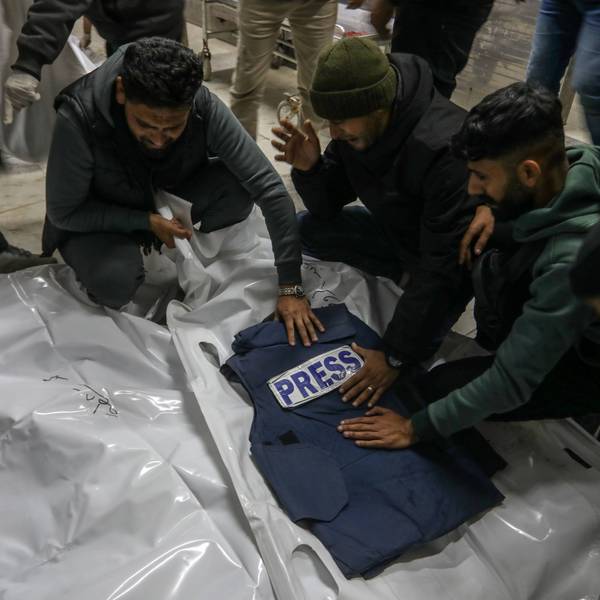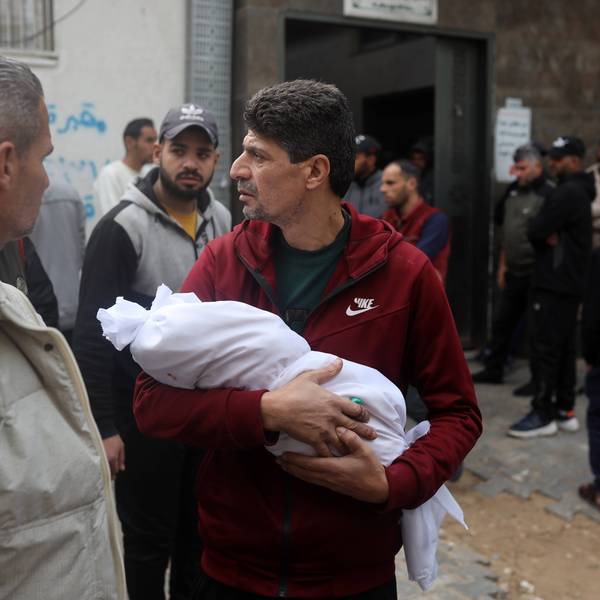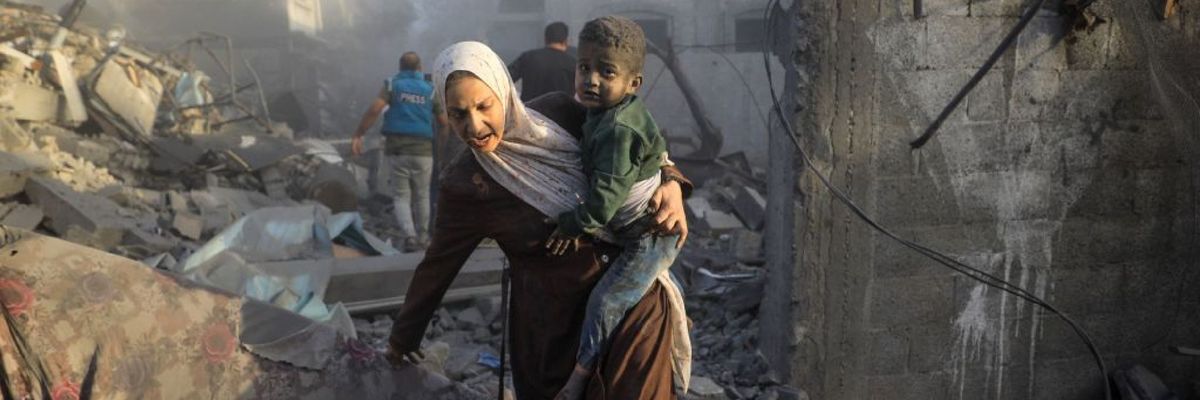This Mother’s Day, children around the country are celebrating their mothers with cards, flowers, and brunch. But few likely remember that Mother’s Day originally started as a day for mothers to call for peace.
In 1870, in the aftermath of the bloody American Civil War, Julia Ward Howe, a prominent American abolitionist, feminist, poet, and author of “The Battle Hymn of the Republic,” gathered mothers to issue the Mother’s Day Proclamation, appealing to moms across national boundaries to take action toward achieving world peace.
On this Mother’s Day, as students across the country protest U.S. support for Israel’s genocide in Gaza, where two-thirds of all Palestinians killed and injured are women and children, women must revive the anti-war origins of Mother’s Day and take a stand against more war and violence.
One thing American mothers can do now is to call on President Joe Biden and Congress to urge Israeli Prime Minister Benjamin Netanyahu to accept terms for a cease-fire, and withhold any more military aid to Israel until the fighting ends.
As a creative force, mothers must speak out now to counter the destructive force of war and violence. Mothers teach their children to be courageous, to speak up when there is injustice, to care for one another, and to resolve interpersonal conflicts with their words, not their fists. We insist now, as then, that our children were not born to fight and die in wars.
According to a May 6 United Nations report by the U.N. Human Rights Office of the High Commissioner, of the nearly 35,000 Palestinians killed since the war on Gaza began, 14,500 have been children and 9,500 women. Three out of four of the 77,000 injured are women, 17,000 Palestinian children have been orphaned, and each day since the start of the war, an estimated 37 Palestinian mothers have been killed. As feminists, we must say enough is enough.
One thing American mothers can do now is to call on President Joe Biden and Congress to urge Israeli Prime Minister Benjamin Netanyahu to accept terms for a cease-fire, and withhold any more military aid to Israel until the fighting ends. Every F-16 fighter jet, every Apache helicopter, every bomb that is dropped on Palestinian civilians is American-made and financed with U.S. taxpayer dollars. As Biden speaks of a “red line” around an Israeli invasion of Rafah—an invasion that, in fact, has already begun—American women must unite across race, class, and religion to insist an end to this carnage against Palestinians.
Women have long played a vital role in peace movements. During the height of the Cold War, Women Strike for Peace mobilized 50,000 women to march in 60 cities across the United States to protest nuclear weapons and the Vietnam War. Led by feminist firebrands Bella Abzug and Dagmar Wilson, they pressured the Kennedy administration to sign a nuclear test-ban treaty with the Soviet Union. In 2015, on the 70th anniversary of Korea’s division by Cold War powers, I marched hand in hand with Nobel Peace laureates Mairead Maguire and Leymah Gbowee, renowned feminist Gloria Steinem, and 10,000 Korean women on both sides of the demilitarized zone to call for a peace agreement to end the Korean War.
For many mothers today, their children are college students protesting the assault on Palestinians much like youth did during the Vietnam War and apartheid in South Africa. Today, thousands of university students have formed over 120 encampments on college campuses across the country to call on their universities to divest from Israel and weapons manufacturers. Students today are risking suspension, expulsion, and arrest to awaken us to the atrocities that our government is backing by continuing to send military aid and weapons to Israel.
At these encampments—racially and religiously diverse gatherings—students provide mutual aid, conflict resolution, and share stories from all over the world about liberation and democracy. What they have learned in the classroom has called them to take action. They are protesting the hypocrisy of their academic institutions preaching human rights while remaining silent on the war, and directly investing in companies that are enabling Israel to kill Palestinian children.
“This is not about Columbia,” Rashid Khalidi, Columbia University Professor of modern Arab history, reminded us, after students were forcefully detained by police. “This is the conscience of a nation speaking through your kids.” When Columbia University students occupied Hamilton Hall, as they did during the Vietnam War and South African apartheid, they renamed it Hind’s Hall in honor of six-year-old Hind Rajab, a Palestinian girl whose entire family was killed in a car by Israeli tanks, and who Israel willfully killed despite international cries for her protection.
As Israeli planes drop seemingly endless American-made bombs on Palestinian civilians, we should all be haunted by the words of seven-year-old Kareem, a Palestinian boy in Rafah who, when asked in an Instagram video why he wrote his name on his arm, replied: “So that when we are bombed, they will know who I am.”
At a time when the U.S. can send $95 billion more to Israel, Ukraine, and Taiwan for more militarization and war but can’t seem to come up with $85 billion for the Child Tax Credit Act, which lifted half of our nation’s mothers and their children out of poverty during the Covid-19 pandemic, what message are we sending about whose lives are worth making more secure? Our young people are deeply wise as they scream for Palestinian freedom. They have learned the lessons of the civil rights and anti-war movements, and now it is our turn to listen.
Just as 154 years ago women anti-war activists gathered in churches, social halls, and each other’s homes to call for a Mother’s Peace Day, today we must return to the 1870 Mother’s Day Proclamation with the clarion call: “Disarm, Disarm! The sword of murder is not the balance of justice.”




